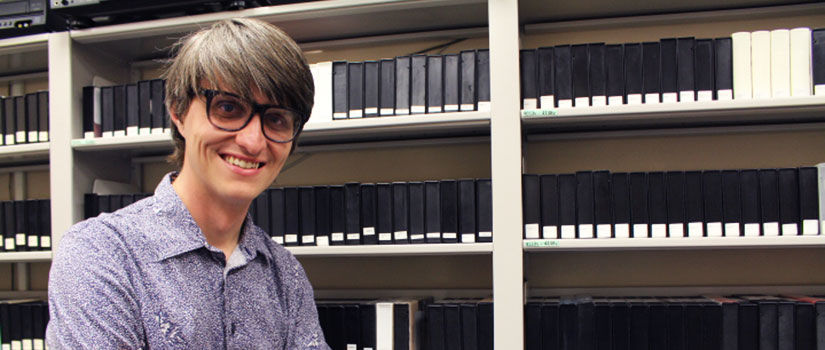Travis Wagner is intent on learning more about the way gender issues are portrayed in society, and he wants to help others understand what to look for when accessing that information.
Since he joined the master's program at the School of Library and Information Science, as well as the Women's and Gender Studies Certificate program, Wagner has jumped right in to deepen his understanding of how gender issues are portrayed.
"A lot of my research interests at the moment are how we access and understand information science, specifically archival material, and how the images tend to focus on a very specific (gender) identity," he said.
To find these images, Wagner searches through the Moving Image Research Center (MIRC), a USC facility that houses one of the largest collections of film reels in the United States, looking at how gender roles are portrayed in them.
Wagner is also a volunteer at the center, helping others to access bilingual information.
"I've been fixated on how language can be limiting to access in archives, so I've been working with the Chinese film collection at MIRC cataloging materials into English," he said. "There's a very big disconnect because, unless you can speak both languages, the materials are either irrelevant or inaccessible to you."
After finding all this research about gender studies and information, Wagner had to tell others about it. Since 2012, he has attended, and presented at, several conferences to share his knowledge, including USC's Women's and Gender Studies Conference.
"One time, I created a panel and we picked material from MIRC and said, 'Hey, look at these other contradictory images that represent society that should be pulled out of the archives and are not,'" he said.
Wagner has also attended the Mid-Atlantic Regional Archives Conference, which led him to be on a committee that addresses the issues of diversity and information science.
His research on bilingual information is also making an impact. Wagner was invited to speak at the US-China Children's Literature Symposium on how to teach Chinese and English language through archival material.
Wagner has also attended the Orphans Midwest Conference; Southeastern Women's Studies Association Conference; Gender, Bodies and Technology Conference; and the South Carolina Federation of Museums Conference.
And he's not done yet. He plans to attend three more conferences before the end of the year.
"I have to pick out conferences where these gender and information issues are being dealt; conferences where I can talk about cyborgs and technology, and also talk about real-world issues of accessing technology," he said. "I'll end up looking online for cyberfeminism or gender and technology, and they end up fitting nicely into information science issues."
Wagner received his undergraduate degree in history and gender studies, then joined the master's program at the School of Library and Information Science. His research at the school has expanded his knowledge on gender issues. "I thought there would never be a connection between information science and gender studies," Wagner said. "But I immediately discovered that was not the case."
